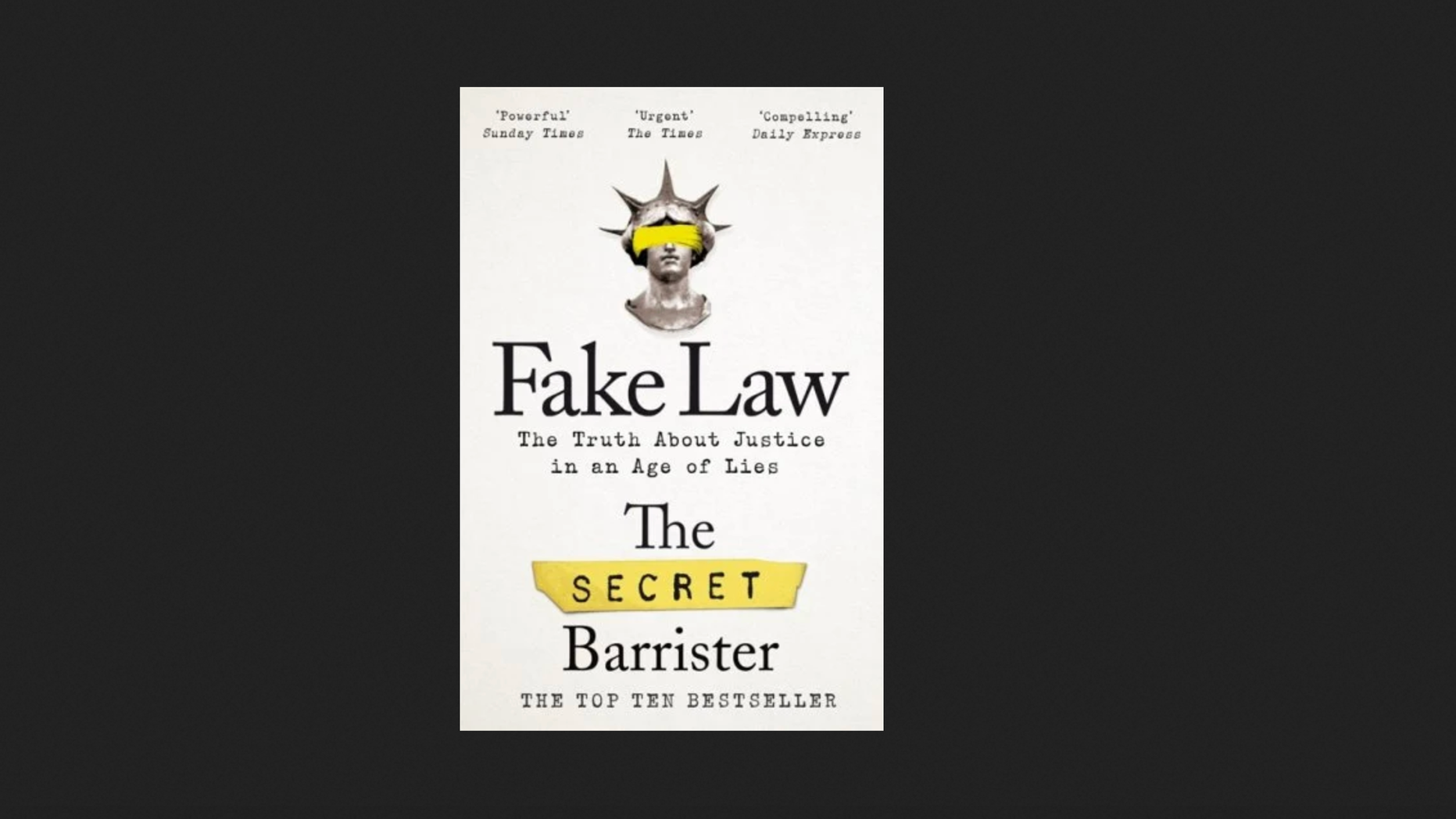Book review: Fake Law - The Secret Barrister
The Secret Barrister’s Fake Law is a continuation of their excellent work dissecting and explaining the UK’s justice system and how our collective misunderstanding of the law allows us to be manipulated.

If you do click through to Bookshop and make a purchase, I'll get a small percentage of the sale (and you won't be charged more).
Like most people, my understanding of the justice system has largely been shaped by films and TV shows. Or, more explicitly, US-based media. There are police procedural shows and reality shows like Traffic Cops, but most of what you think you know comes from the media. It's a similar situation when it comes to the press.
This poses a challenge for those working in the profession. The law underpins our daily lives, even if we don't realise it. But our collective lack of understanding, or even misunderstanding, allows us to be manipulated.
Whether malicious or not, the things we think we know about the law and justice system are shaped by other people's opinions or motives. In a world so overflowing with information, wading through the onslaught for those items you need for your daily life takes priority over gaining a broad understanding of a system that is primarily seen as for someone else.
As law-abiding citizens, we're trained to believe that the law is only there to capture and punish 'others.' The news media and politicians promote this misunderstanding to further their own ends. This is the situation in which the legal profession finds itself continually battling.
Fake Law by The Secret Barrister is an ideal book for understanding the justice system and training yourself to critically assess the information you're presented with. Not in the sense that you deem everything you read as fake news, but that you should question whether what you're being told sounds reasonable.
The book primarily deals with the past decade — in other words, since the coalition government's election in 2010 — but this isn't an exercise in partisanship. They cover the origins of these political trends, which have roots in the 1980s Conservative government, and again during the Blair years.
Throughout, The Secret Barrister takes a case study, shows how the situation wasn't quite as it seemed, and looks at how and why this misunderstanding was allowed to persist, as well as its more profound implications. Each example is illustrative of a more widespread problem.
More often than not, the cases covered in the book are the ones that gained the most mainstream coverage, and so are topics and situations we think we are familiar with. If you believe in the justice system's process to treat each individual fairly and without bias, you'll most likely be appalled by the changes that have taken place.
For instance, the amendments to legal aid have all but stripped the system to nothing more than a name. If you knew, if you really knew, what effect this would have on the application of justice, it wouldn't have been so easy for the politically-motivated changes to pass through.
But that's not your failing; it's a society-wide weakness in how we approach justice. Instead of believing that the system is only there to punish the evil and wicked, we should be taught its real purpose; to support and protect society.
Fake Law, coupled with The Secret Barrister's first book, The Secret Barrister: Stories of the Law and How It's Broken, should be essential reading. Not just now, not just in this political climate, but we, as a collective, should ensure that the justice system and its importance is better understood because it matters, to all of us.

